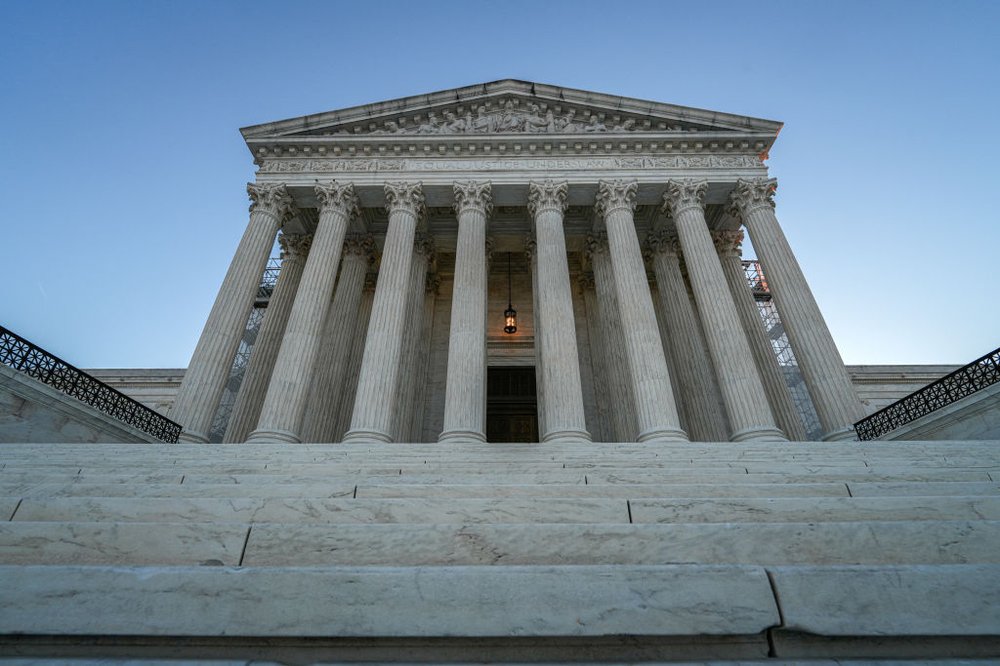SCOTUS rejects challenges to NY’s rent-stabilization rules
Feb. 20, 2024, 12:47 p.m.
The justices decided not to consider a pair of lawsuits from landlords trying to end rules capping rent increases on roughly 1 million NYC apartments.

The U.S. Supreme Court is refusing to hear a pair of challenges to New York’s rent stabilization laws that could have upended a system capping rent increases on roughly 1 million apartments citywide.
The high court on Tuesday said it would not consider two cases brought by landlords of rent-stabilized buildings in Long Island City and parts of Manhattan who argued the regulations prevented them from evicting tenants after their leases expired. But the court didn’t entirely rule out the possibility of future challenges.
In addition to limiting annual rent increases, the rent-stabilization laws require owners to offer tenants lease renewals in most cases. The landlords — a group of limited liability companies — said those rules violate their property rights, though past decisions from the Supreme Court have upheld rent regulations elsewhere.
The Supreme Court previously rejected two related challenges brought by the landlord trade groups Rent Stabilization Association and Community Housing Improvement Program, or CHIP, in October 2023.
CHIP Executive Director Jay Martin said it won’t be the last time property owners try to overturn the rent laws. Two similar cases are pending in federal appeals court — the final step before reaching the Supreme Court.
"We're expecting there will be other challenges,” he said. “But this puts even more pressure on the Legislature.”
CHIP and other landlord groups are urging state lawmakers to revise regulations that eliminate hefty rent increases on vacant apartments — a practice known as a “vacancy bonus” — and limit increases related to apartment renovations. Lawmakers enacted those measures as part of a sweeping package of reforms strengthening regulations in favor of tenants in 2019, sharply limiting the tools available to landlords to raise rents.
Assemblymember Linda Rosenthal, the housing committee chair, said any effort to reinstate the vacancy bonus is a non-starter, though she said lawmakers are open to reviewing rules capping increases related to individual apartment improvements, or IAIs.
She said the vacancy bonus incentivized owners to drive tenants out of their units so they could raise rents between occupants.
“We are not going to go back in time,” Rosenthal said. “That was a prime motivator of harassment on tenants.”
She said she hoped landlords and their advocates would drop their attempts to “circumvent” the state’s regulations.
“Landlords can have their dreams, but they’re not going to become reality,” Rosenthal said.
In a statement, Gov. Kathy Hochul said the regulations "remain some of our state’s most powerful tools to fight inequality, preserve affordability, and keep New Yorkers safely housed in their own communities."
New York enacted rent-stabilization rules in 1969 amid a spike in rental prices. Current laws largely apply to buildings constructed before 1974 with six or more units that were not previously deregulated, as well as newly constructed buildings that receive tax breaks and other government subsidies.
Multiple organizations intervened in the lawsuits to oppose the landlords’ attempts at overturning the rent laws.
In a joint statement, the Legal Aid Society, Legal Services NYC and the law firm Selendy Gay said the court’s decision is “in line with well-established precedent and puts an end to these cases attacking the legal protections depended upon by a million New York households amid an ongoing housing crisis.”
In the court’s decision not to take up the case, Supreme Court Justice Clarence Thomas seemed to leave open the door to future challenges, writing that the court should “address this important question” of whether the regulations actually prevent owners from evicting tenants.
City data first reported by Gothamist shows marshals completed roughly 12,000 evictions across New York City last year, including many in rent-stabilized apartments. Landlords successfully removed more than 77,000 renters from their apartments between 2017 and the end of 2023, according to city data.
US Supreme Court rejects challenge to NY’s rent stabilization laws, but two cases linger NYC evictions surged in 2023, with legal lockouts nearing pre-COVID levels